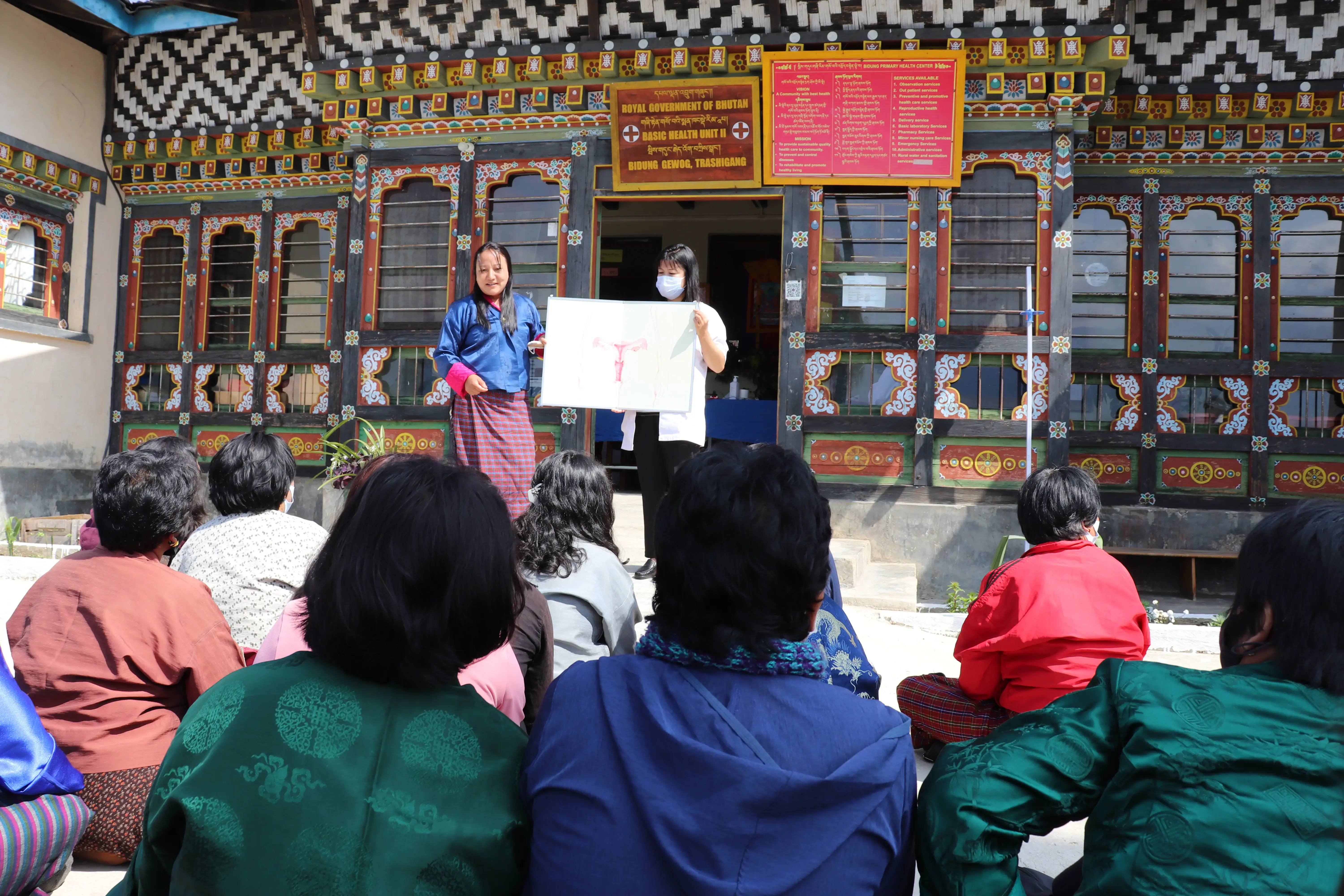Universal access to sexual and reproductive health is a human right, and it is a critical component to save lives of women and promote gender equality.
Access to quality sexual and reproductive health information and services is core towards ensuring every individual’s right to make informed choice and decision regarding their sexual and reproductive health. It is at the core of sustainable development.
Bhutan has made remarkable progress over the past two decades with the maternal mortality ratio falling from 255 maternal deaths per 100,000 live births in the year 2000 to 89 per 100,000 in 2017 The progress has been attributed to increased coverage of skilled antenatal care and institutional deliveries. However regional and district-level disparities remain in quality of services and coverage. Gaps in comprehensive knowledge among mothers and neonatal health among healthcare providers, as well as poor documentation of essential maternal and child health services also remain key concerns in terms of quality and last-mile maternal health indicator achievements. With contraceptive prevalence at 65.6 per cent (30.2 per cent for adolescents) and more than 40 per cent of the population consisting of adolescents and young people, their sexual and reproductive needs, including teenage and unintended pregnancies, remain key concerns, with lack of data making it difficult to gauge the magnitude of the issue.
Ending preventable maternal mortality and unmet needs for family planning accelerated
UNFPA is strategically collaborating with the Government, non-governmental organizations, youth groups and other United Nations organizations through technical support, capacity-building and advocacy in following areas:
- Integrating SRHR into universal health coverage policies, disaster risk reduction and climate change plans and accountability frameworks including health sector response to violence particularly for vulnerable groups in collaboration with relevant agencies
- Improving the quality of maternal and child health and emergency obstetric and neonatal care services including strengthening institutional capacity for midwifery in accordance with international standards
- Facilitating South-South and triangular cooperation and strengthening partnerships and evidence-based advocacy with legislators, key decision-makers and religious leaders on emerging issues.
- Supporting review of national laws and policies and implementation bottlenecks that discriminate against persons based on gender, age, sexuality and disability including advocating for a strengthened policy environment for disability-inclusive and youth-friendly sexual and reproductive health services
- Taking a health systems approach to strengthen adolescent and youth-responsive sexual and reproductive health information and services to young people with disabilities and diverse SOGIE.


